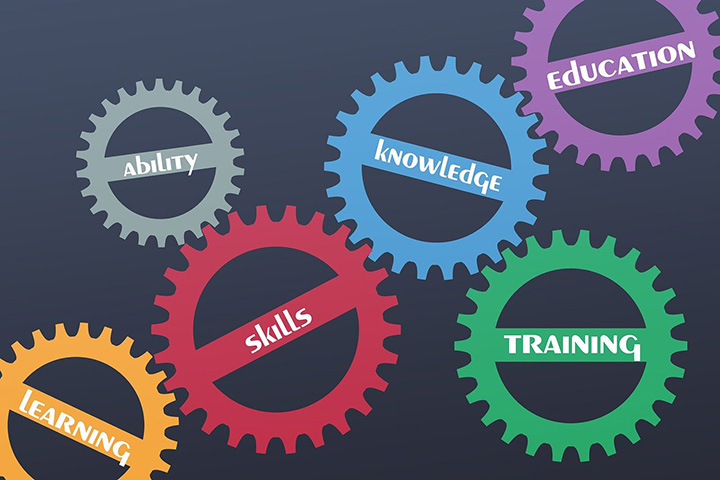10 AI literacy
Technology is moving at a rapid rate and to be able to operate in an AI-driven world requires an ongoing process of learning and developing your skills and knowledge.
AI literacy should be part of your continuing professional development, which comprises of understanding AI, and the opportunities, risks and challenges. In Course 7, you learnt about AI regulation, and in Article 4 of the EU AI Act there is a specific requirement for AI literacy for those who use AI systems as an employee.
“Providers and deployers of AI systems shall take measures to ensure, to their best extent, a sufficient level of AI literacy of their staff and other persons dealing with the operation and use of AI systems on their behalf, taking into account their technical knowledge, experience, education and training and the context the AI systems are to be used in, and considering the persons or groups of persons on whom the AI systems are to be used.”
In the US, at the time of writing, there is draft legislation in progress that covers AI literacy; the AI Leadership Training Act [Tip: hold Ctrl and click a link to open it in a new tab. (Hide tip)] . This bill requires the Office of Personnel Management (OPM) to develop and implement an annual training program on artificial intelligence (AI) for federal managers, supervisors, and other employees designated to participate in the program.
The program shall, at a minimum, include information relating to:
- What AI is and how it works.
- The benefits offered and risks posed by AI.
- Ways to mitigate the risks of AI.
- Organizational considerations for the development and deployment of AI.
- Other specified topics.
The Artificial Literacy Act 2023 (which amends the Digital Equity Act 2021) proposes that:
This bill provides for grants under the Digital Equity Competitive Grant Program to support training and programming on artificial intelligence in schools, colleges, and other community institutions. .....Under the bill, such grants may fund programs to support artificial intelligence literacy, including education on the basic principles, applications, and limitations of artificial intelligence.
In the UK, at the time of writing, there is no legal requirement for AI literacy, but the Artificial Intelligence Playbook for the UK Government published in February 2025 has ten principles. Two of these very specifically align with AI literacy: Principle 1: You know what AI is and what its limitations are and Principle 9: You have the skills and expertise needed to implement and use AI. The UK Government National AI Strategy covers AI literacy within skills for jobs.
AI literacy is therefore an important framework to critically understand, evaluate and use new technologies and one that requires a ‘self-reflective mindset’ (Chiu and Sanusi, 2024). It is recognised that AI is distinct from other digital technologies and requires its own set of competencies.
Many frameworks, like UNESCO, focus on supporting students and teachers to incorporate AI competencies in education. These frameworks aim to equip learners with the skills, knowledge and values to engage with AI effectively. UNESCO also published a report in 2023 that considered how the trends that are impacting on society are relevant to the future of education and the future of work. The report sets out the competencies for the future which include digital skills, but also other skills like emotional intelligence, creativity and critical thinking, which are all needed in human oversight of AI.
Drawing on the key elements that you have engaged with over the eight courses, we have set out a framework below that we suggest reflects the competencies required to critically engage with GenAI in legal contexts.
Click on each label below to learn more.
 How confident are you about your AI literacy?
How confident are you about your AI literacy?
Rate your confidence in each of these AI literacy areas on a scale of 1–5.
All responses are completely anonymous.
Discussion
Based on your self-assessment, you might want to create some goals, for example:
I will read one article about AI ethics this week.
I will experiment with an AI tool and reflect on its applications.
I will learn more about AI regulation.
You might want to create a learning journal to track the development of your knowledge and understanding of AI.
9 Human and LLM collaboration




